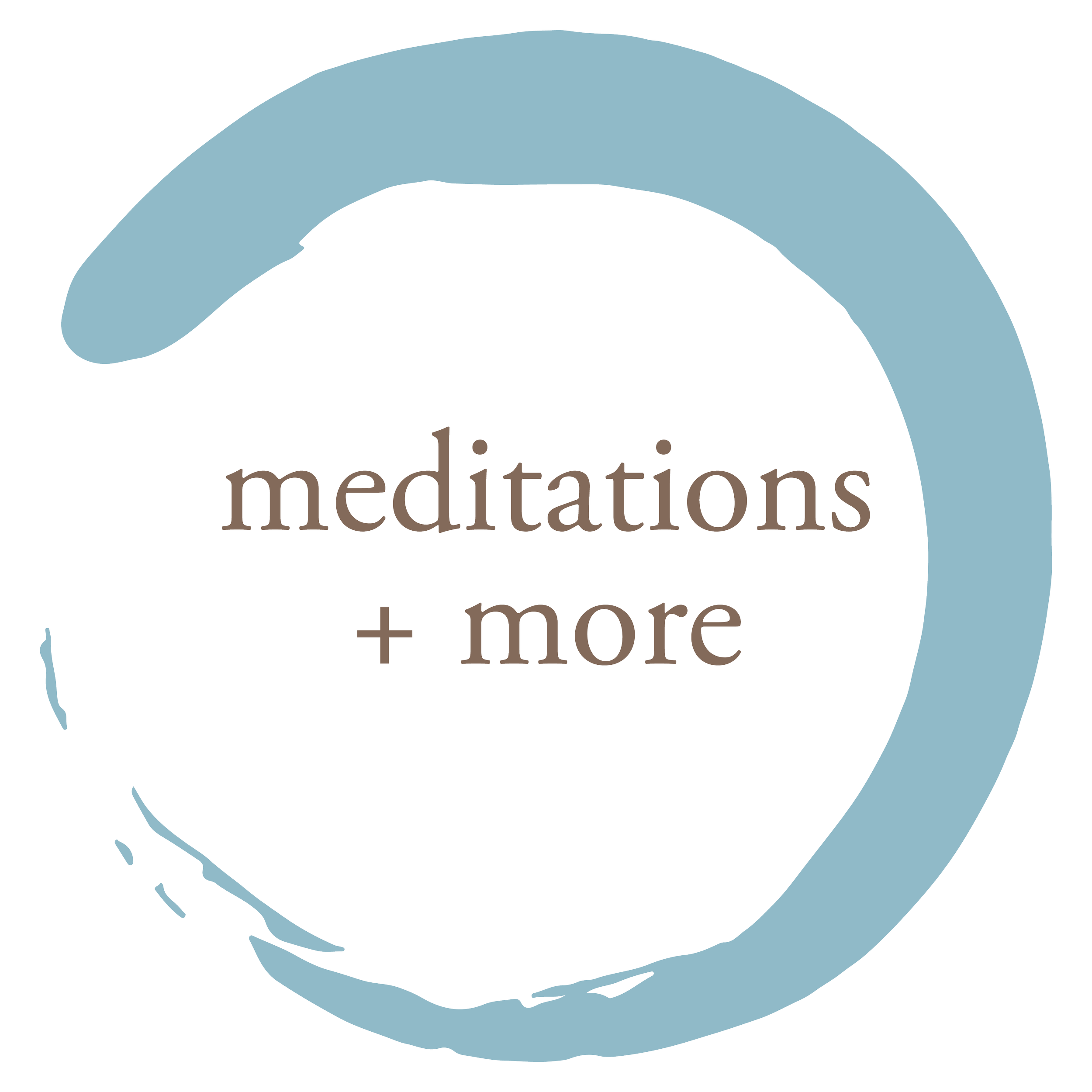
meditations + more for educators
These meditations, lessons, and podcasts offer a variety of mindfulness-building activities, whether you’re hoping to develop your own mindfulness or help children develop listening skills, relaxation, attention, reframing, or connecting. you’re sure to find some wonderful resources here.

-
Steady, flexible attention develops our capacity to focus and quiet our minds and bodies.
-
Balance enhances our capacity to see and reframe our situations.
-
Speaking, acting, and relating to others (and ourselves) with compassion develops our capacity to care and connect.
-
Simple, mindful insights & lessons for all ages.
-
Mindfulness enhances our health and quality of life at any age. It’s no wonder so many of us want to teach mindfulness to our kids—but how can a busy parent find both the time and the right approach? Discover the life-changing power of mindfulness together—in just ten minutes a day in these guided meditations from Susan’s audio series for parents.
-
Join Susan as she shares practical insights and techniques on popular podcasts.

meditations for focusing + quieting
Steady, flexible attention develops our capacity to focus and quiet our minds and bodies. The six social, emotional, & academic life skills that mindfulness builds are symbiotic, though, and as children and adults develop in one area, they also develop in others.
Mindfulness-based strategies that target stress-management, pain-management, and quieting often encourage a light focus on the out-breath because that simple shift in attention can ease both physical and mental discomfort.
Inspired by a Zen practice taught by Thich Nhat Hanh, this guided meditation uses a calming visualization to cultivate self-compassion. Imagine pouring a cup of nectarlike compassion over your head, washing away negativity, judgment, and doubt. Perfect for parents and children to practice together, fostering kindness and emotional resilience.
When strong emotions take over, it’s called emotional hijack—a term from Daniel Goleman’s Emotional Intelligence. This guided meditation teaches mindfulness-based calming strategies to quiet your nervous system, helping you regain openness, flexibility, and focus. Perfect for adults seeking balance and resilience.
In this 10-minute guided practice with Susan Kaiser Greenland, we notice how our minds and bodies feel when we stop, breathe, and be.

meditations for seeing & reframing
Balance enhances our capacity to see and reframe our situations. The six social, emotional, & academic life skills that mindfulness builds are symbiotic, though, and as children and adults develop in one area, they also develop in others.
How much good news does it take to balance out a single piece of bad news?
Discover the calming power of sound awareness in this six-minute guided meditation. Perfect for teenagers and adults, this live recording from a webinar for parents helps you pause and tune into the sounds within and around you, offering a practical alternative to mindful breathing during intense emotions.
Discover how the law of reversed effort, or the backwards law, applies to meditation in this brief guided practice. Sometimes, the harder we try, the less likely we are to succeed. Learn to let go, relax, and find ease with simple, clear instructions inspired by swim teachers—perfect for busy adults.
A cognitive bias that gets a lot of attention, at least in meditation circles, is the negativity bias. Simply put, having a negative bias means we’re wired to give more weight to lousy news than good news. Let’s change that with this guided practice where we focus on the good.
Kids whose parents are comfortable saying “I don’t know, at least not yet, let’s figure this out together” have more agency and control. And so do their parents.
Life has a way of throwing curve balls and it’s up to us how we respond. What would happen if we loosened our grip instead of clamping down?
We think of things we have in common with someone who seems different than us and silently say, “he or she is just like me.”
In this 10-minute guided practice with Susan Kaiser Greenland, we notice how our minds and bodies feel when we stop, breathe, and be.
We listen to the sound of the rain and remember that everything changes. A 6-minute guided meditation for all ages.
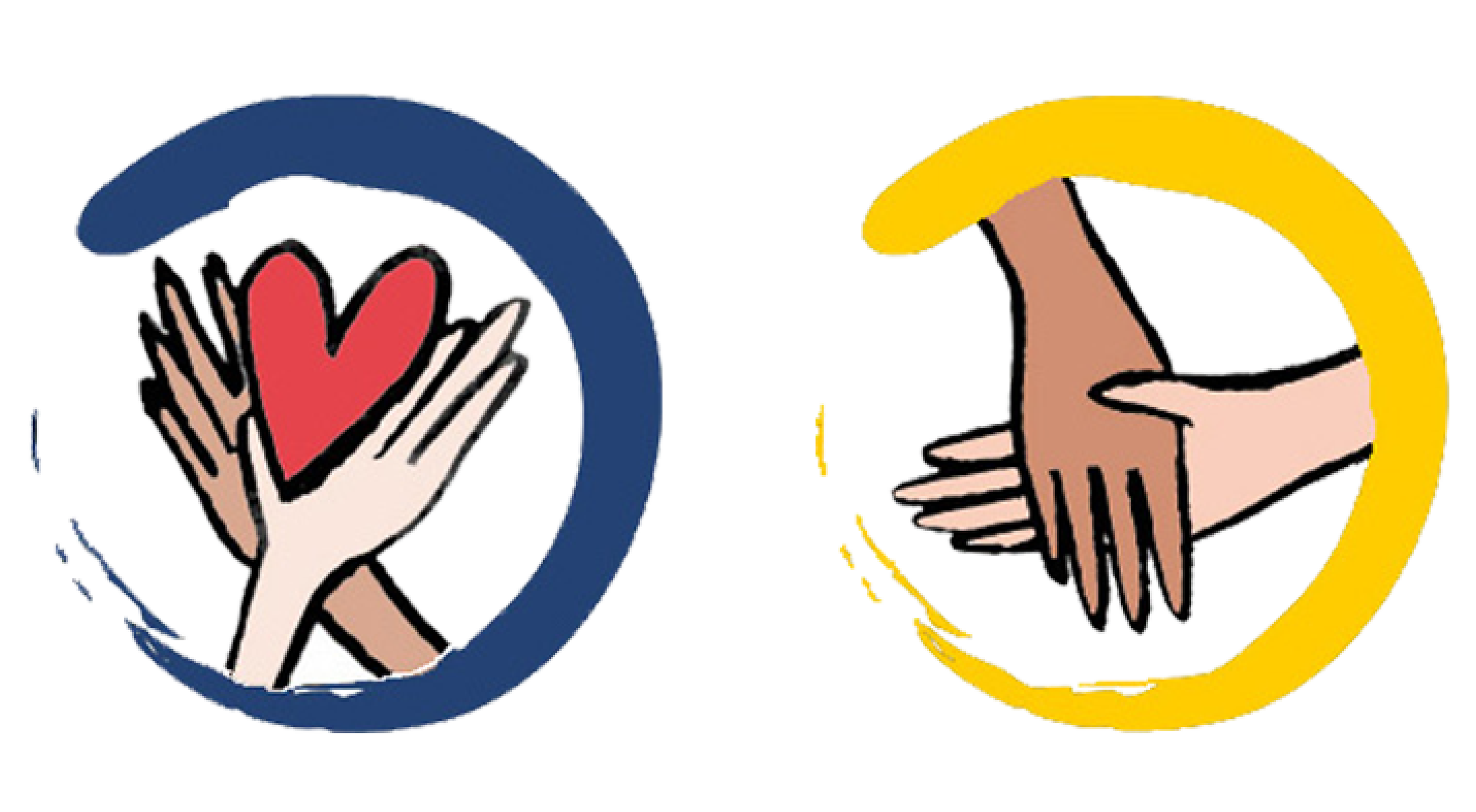
meditations for caring & connecting
Speaking, acting, and relating to others (and ourselves) with compassion develops our capacity to care and connect. The six social, emotional, & academic life skills that mindfulness builds are symbiotic, though, and as children and adults develop in one area, they also develop in others.
Inspired by a Zen practice taught by Thich Nhat Hanh, this guided meditation uses a calming visualization to cultivate self-compassion. Imagine pouring a cup of nectarlike compassion over your head, washing away negativity, judgment, and doubt. Perfect for parents and children to practice together, fostering kindness and emotional resilience.
In this seven-minute guided practice, children and teens get comfortable, relax, and gaze at the sky to explore what’s happening within and around them.
We think of things we have in common with someone who seems different than us and silently say, “he or she is just like me.”

mindful parent, mindful child
Mindfulness enhances our health and quality of life at any age. It’s no wonder so many of us want to teach mindfulness to our kids—but how can a busy parent find both the time and the right approach? Discover the life-changing power of mindfulness together—in just ten minutes a day in these guided meditations from Susan’s audio series for parents.
How much good news does it take to balance out a single piece of bad news?
Mindfulness-based strategies that target stress-management, pain-management, and quieting often encourage a light focus on the out-breath because that simple shift in attention can ease both physical and mental discomfort.
Inspired by a Zen practice taught by Thich Nhat Hanh, this guided meditation uses a calming visualization to cultivate self-compassion. Imagine pouring a cup of nectarlike compassion over your head, washing away negativity, judgment, and doubt. Perfect for parents and children to practice together, fostering kindness and emotional resilience.
Discover how the law of reversed effort, or the backwards law, applies to meditation in this brief guided practice. Sometimes, the harder we try, the less likely we are to succeed. Learn to let go, relax, and find ease with simple, clear instructions inspired by swim teachers—perfect for busy adults.
When strong emotions take over, it’s called emotional hijack—a term from Daniel Goleman’s Emotional Intelligence. This guided meditation teaches mindfulness-based calming strategies to quiet your nervous system, helping you regain openness, flexibility, and focus. Perfect for adults seeking balance and resilience.
The surest way to raise a mindful child is to be a mindful parent.
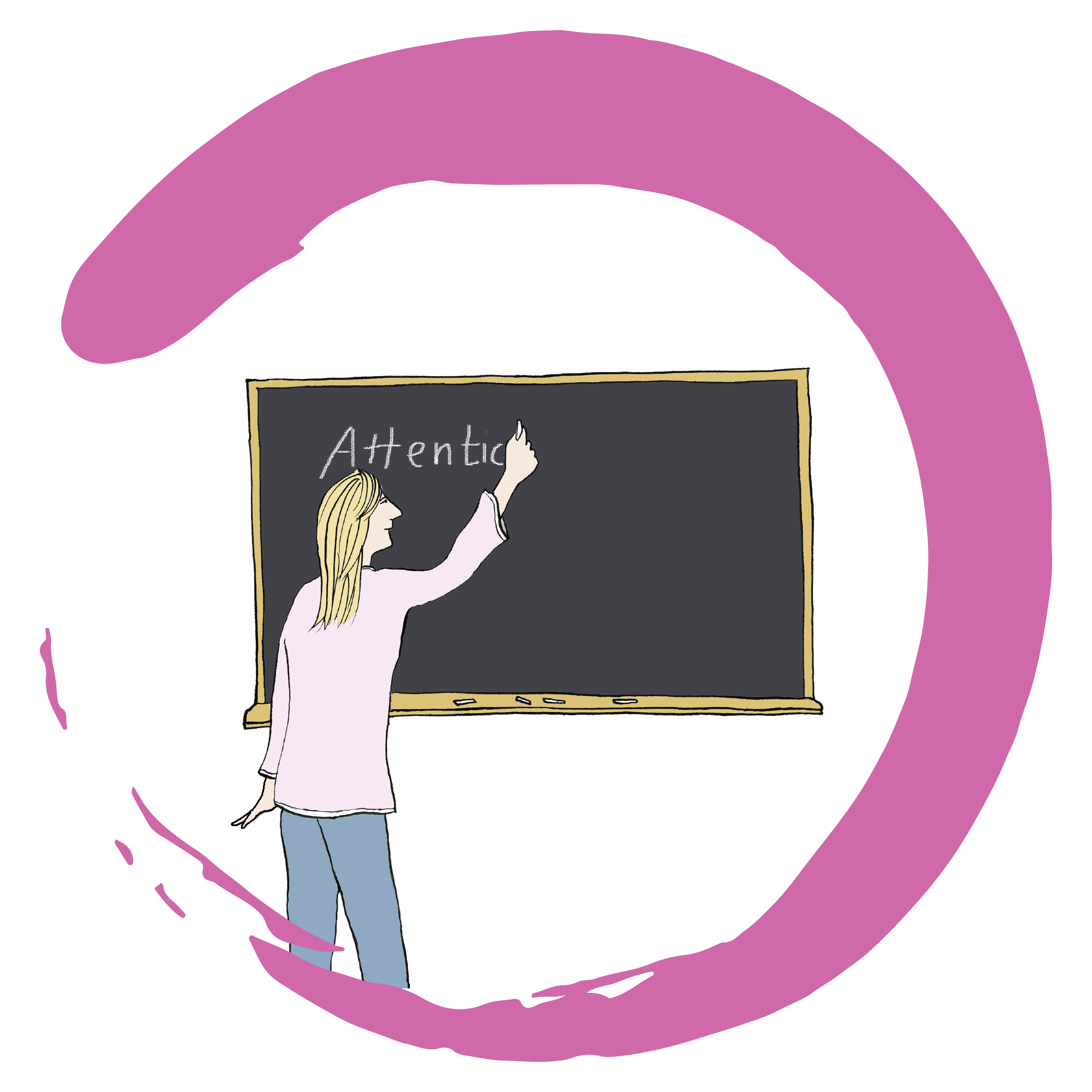
The surest way to raise a mindful child is to be a mindful parent.
Kids whose parents are comfortable saying “I don’t know, at least not yet, let’s figure this out together” have more agency and control. And so do their parents.
When our minds change - when we feel more relaxed, less stressed, and less reactive - our bodies change too. And when our minds and bodies change our behavior changes, which shifts outcomes, which in turn affects what happens in the world.
audio lessons
Simple, mindful insights & lessons for all ages.
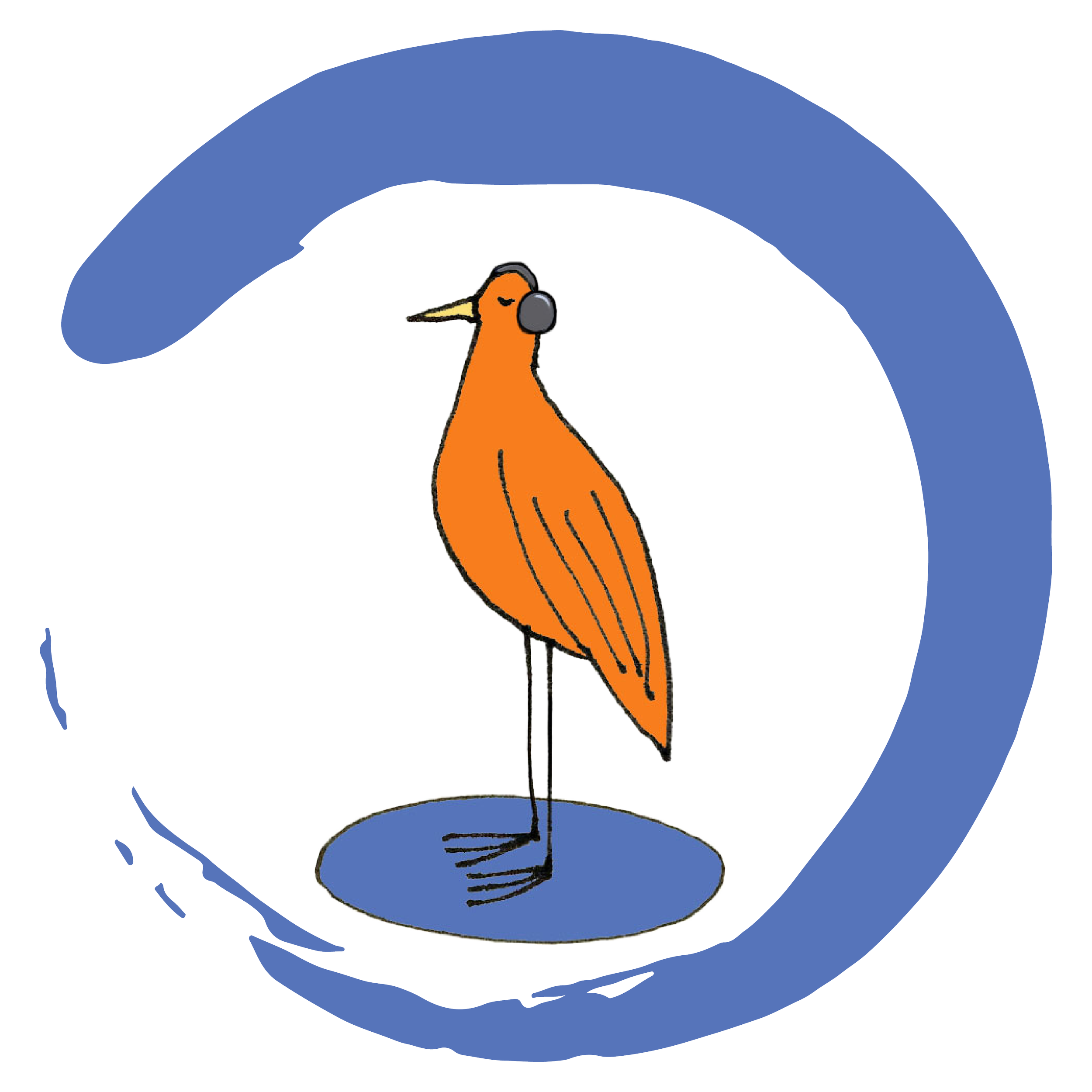
podcasts
Join Susan as she shares practical insights and techniques on popular podcasts.
Drew Perkins talks with Susan Kaiser Greenland about her latest book, Real-World Enlightenment: Discovering Ordinary Magic in Everyday Life.
I spoke with my hometown library in Paw Paw, Michigan, about skills, practices, and insights drawn from wisdom teachings from around the world to ease anxiety and stress.
In this episode with Moore Family Law Group Founder & CEO Holly J. Moore, we discuss easy meditation, applying mindfulness to daily life, using mindfulness to navigate political differences, teaching kids mindfulness, and my new book, “Real-World Enlightenment: Discovering Ordinary Magic in Everyday Life.”
During this insightful 60-minute conversation with Dr. Cortland Dahl, Susan Kaiser Greenland, a beloved mindfulness teacher, best-selling author, seasoned Buddhist practitioner, and long-time student of Mingyur Rinpoche, will share her personal journey with meditation and the inspiration behind her recent book Real-World Enlightenment.
Are you looking for practical, approachable insights woven together with mindfulness, psychology, science, and time-honored traditions and cultures? Tune in for an inspiring discussion with Susan Kaiser Greenland on her new book, Real-World Enlightenment: Discovering Ordinary Magic in Everyday Life.
In this online conversation hosted by Banyen Books in Vancouver BC, I sat down with my longtime friend Cortland Dahl to discuss our new books.
The podcast where we explore the brilliant minds that have inspired brilliant minds. Hosted by the Reverend Jacob Bolton, Associate Pastor at Westminster Presbyterian Church. Our brilliant mind this week is author and mindfulness educator Susan Kaiser Greenland.
Say hello again to Susan Kaiser-Greenland! Susan's new book, Real-World Enlightenment: Discovering Ordinary Magic in Everyday Life is a must-read to help you manage your stress and find resilience through practical and approachable advice for living in the real world!
Scott Tusa is a Buddhist meditation teacher and practitioner who has spent the last 25 years exploring how to embody and live meaningfully through the Buddhist path.
Flourish FM is hosted by Dr. Jon Beale and Dr. Nick Holton, and in collaboration with the Human Flourishing Program at Harvard University, the Antifragile Academy, the Department of Education at the University of Oxford, and The Shipley School.
This is a conversation with Suze Yalof Schwartz, the CEO and Founder of Unplug Meditation, about my latest book Real-World Enlightenment: Discovering Ordinary Magic in Everyday Life.
Join Dan Skinner on Kansas Public Radio's Conversations as he interviews Susan Kaiser Greenland about her latest book, “Real World Enlightenment: Discovering Ordinary Magic in Everyday Life.”
Join Susan Kaiser Greenland on Seattle’s KKNY's Sunday Morning Magazine with Kate Daniels as they discuss her new book, “Real-World Enlightenment: Discovering Ordinary Magic in Everyday Life.”
Join Susan Kaiser Greenland on the Delight in Parenting podcast as she explores mindfulness, self-compassion, and meditation for parents.
Explore "Real-World Enlightenment: Discovering Ordinary Magic in Everyday Life" with Susan Kaiser Greenland on "Like It's Live" with Arrow Collins for iHeart Radio.
In a conversation with James Shaheen and Sharon Salzberg, mindfulness educator Susan Kaiser Greenland offers practical tools for getting out of our own way and tapping into our innate goodness .
Wouldn’t you love to have the tools you’ll need to enjoy a meaningful and fulfilling life? What about knowing the techniques that can transform your inner dialogue and conquer negative thoughts? Wouldn’t it be great learn how to overcome your self-limiting thoughts and keep your life moving forward with joy and gratitude? If these ideas sound good to you, you are going to LOVE this show!
Enlightenment in this lifetime may seem like a lofty and unattainable goal. Author and spiritual teacher Susan Kaiser Greenland finds enlightenment anytime in life’s highs and lows, offering insightful tools and strategies for awakening in this real everyday world.
We can broaden our bandwidth and use mindfulness skills to parent with more presence during difficult times.
We’re in the middle of one of the greatest tests for parents in modern memory. Tens of millions of us, cooped up in our homes with our kids, as a consequence of the coronavirus. Susan Kaiser Greenland can help.
A fun and engaging conversation about easy ways to make mindfulness part of a family's routine, and how kids want parents to be the "captain of the ship."
Mindfulness practices help you become less reactive, so how can you share it with your kids?
For episode 103 of the Metta Hour Podcast, Sharon Salzberg speaks with friend and colleague, Susan Kaiser Greenland.
Drew Perkins talks with Susan Kaiser Greenland about how mindfulness, meditation, and awareness can help students be more successful learners.
Susan talks with Tami Simon, the founder of Sounds True, about all things related to mindfulness for kids and parents, including ways to lead a kinder, wiser, and happier life.
Fun, wide-ranging conversation with Susan Kaiser Greenland, Dan Harris and Annaka Harris (no relation) on everything from advice for sharing mindfulness with kids, to the origin story of the Inner Kids Foundation, to somewhat controversial topics like careerism and teaching kids a practice that evolved from Eastern spiritual traditions.
Susan was a huge inspiration to us when we first got started teaching Mindfulness to 6th through 8th graders and it was cool for us to talk to her first hand.
Lama Surya Das talks with Susan Kaiser Greenland about teaching mindfulness to the younger generation.
Can mindful meditation be the antidote to political toxicity? Will a morning meditation routine ease our anxiety?
Susan Kaiser Greenland, author of The Mindful Child and Mindful Games, visits the podcast to discuss introducing preschoolers to mindfulness.
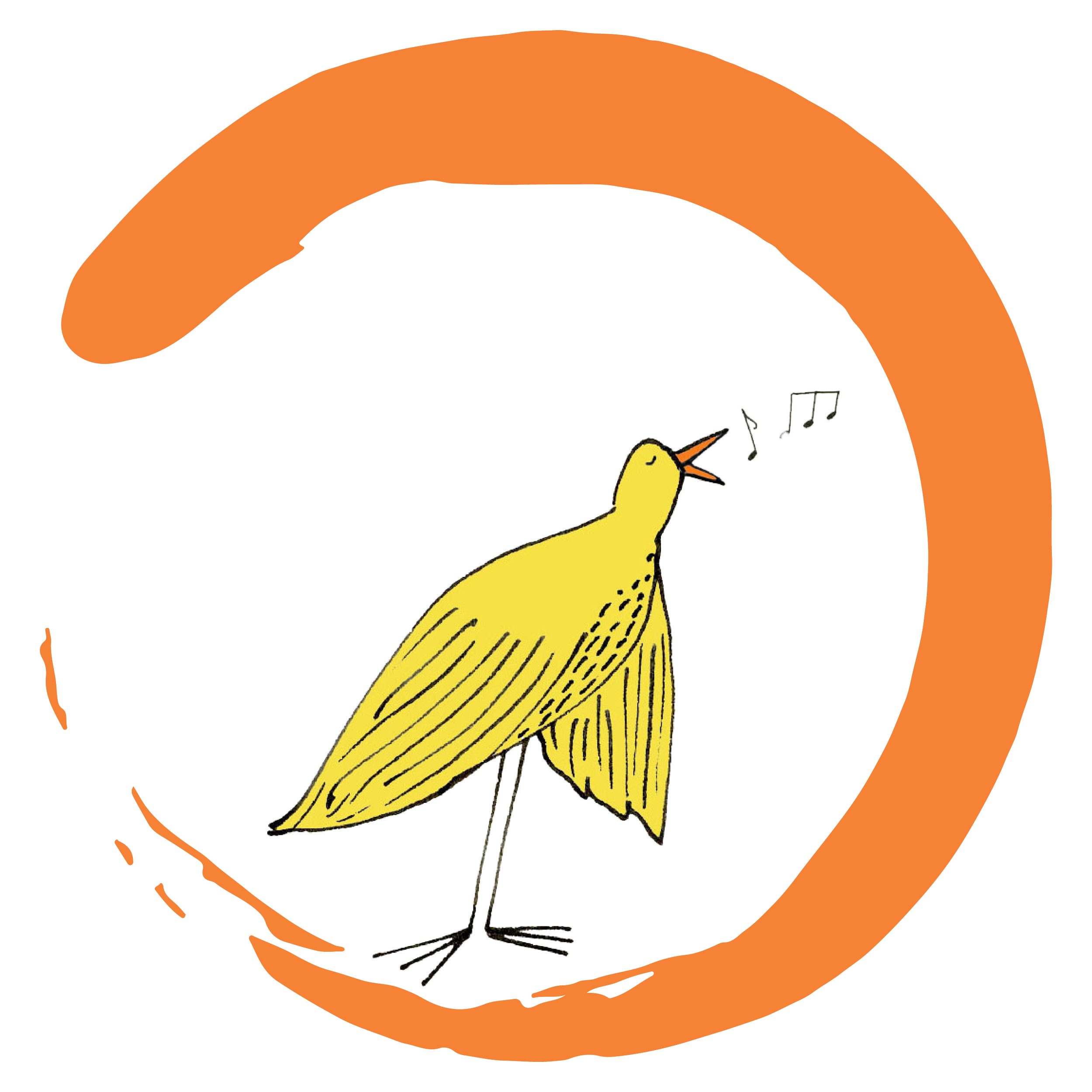
songs
Music is one of the best ways to introduce new ideas, connect emotionally, and reinforce core concepts. Check out these lovely and fun songs with your elementary-age children.
Discover a lively and engaging folk song perfect for children! Shared by Tom Nolan from the Crossroads School and the Council in the Schools program, this playful tune brings joy and connection to young listeners.
Enjoy the timeless folk song My Peace by Woody and Arlo Guthrie, performed by Gabe Greenland. This classic tune inspires inner and outer peace, making it perfect for children of all ages to connect with mindfulness and calm through music.
Learn this beautiful folk song for children of all ages, shared by Tom Nolan from the Crossroads School and the Council in the Schools program. With lyrics encouraging connection to inner freedom and guidance, it’s a heartfelt way to explore mindfulness through music.
Teach children the calming power of mindful breathing with this engaging song. Through music, kids learn how pausing to feel their breath helps them feel more focused and relaxed. Perfect for introducing mindfulness in a fun and accessible way.
Affectionately called "Breathe In, Breathe Out," this song by Sarah Dan Jones, arranged and performed by Gabe Greenland, helps children calm down, improve focus, or simply enjoy a moment of mindfulness. A soothing and fun way to practice mindful breathing through music.



